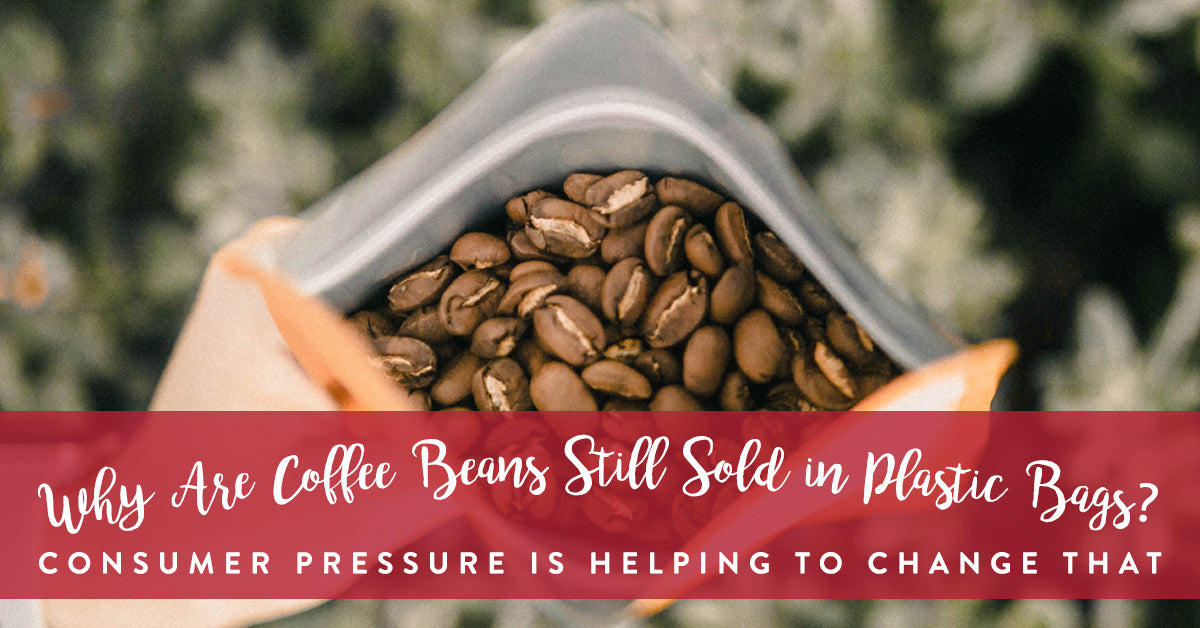
Why Are Coffee Beans Still Sold in Plastic Bags?
With increasing public concern about plastic waste, we’ve been on a journey to reduce our reliance on plastic at Spiller & Tait. We’ve had some limited successes and we do plan to persevere. But, as a small company, we are very dependent on the rest of the coffee industry to help us make positive strides.
For example, the shredded cardboard box filling material, applied sparingly in the postal boxes for orders placed on this website, has been a big hit with our customers. By shredding up old boxes to create the filler and relying on customers to recycle it, we’ve been able to eliminate all plastic filling material at Spiller & Tait. But, it won’t have escaped the notice of S&T customers that all of our coffee is still dispatched in plastic bags. These bags are made from multi-layer plastic barriers which create the airtight seal essential to help our coffee stay fresh after roasting. The plastic valve embedded in each bag has a one-way mechanism which prevents the build-up of CO2 in the bag as it is released from the coffee beans while it “rests” after roasting. Unfortunately, these multi-layer plastics, and the valve, can’t be recycled, which troubles us.
We have considered several of the alternatives to plastic bags that are currently on the market. Some S&T customers have suggested we use the Kraft Paper Bags, favoured by some coffee roasters these days. However, these are simply multi-layer plastic bags with a paper cover. To our mind, they are more wasteful than pure plastic. Others have suggested the new biodegradable, or compostable, plastic bags which are increasingly available. We’ve done our own research on these and decided they are not for us. Without being too disparaging, the consensus of current scientific opinion on these bags is that they are either not what they claim, or, if they do degrade, they only break-down into the micro plastics which also pollute the Oceans and enter our food chain.
As a very small company with a very limited purse, we are not in a position to innovate our own non-plastic solution. But, there is some encouraging news. By responding to customer pressure and asking questions of our suppliers about plastic packing alternatives, we have inadvertently joined forces with many other roasters who are preoccupied with the same concern. The net result is that our packaging suppliers are responding and moving quickly to innovate with solutions that might well help reduce the scourge of plastic waste.
At the moment, plant-based foils look like they might well become a viable option for the environmentally conscious within the coffee sector and food sector more broadly. Late last year, Percol, a very large UK coffee brand, moved all of its Ground Coffee and Bean packaging to bags made from a plant-based foil derived from paper, plant fibres and eucalyptus wood pulp. Their bags now carry a "Plastic Free" Trust Mark offered by A Plastic Planet. Percol believe these bags offer the airtight feature of plastic, but with the amazing benefit of being disposable in council food waste bins, along with the coffee grains!
We see this as a very exciting development and have started conversations with our suppliers to see if and when we can get involved. Whether the solution is plant-based or otherwise, we have confidence that it won’t be long before the coffee industry, led by consumer demand, is selling vast amounts of coffee in sustainable bags which don’t damage our environment, or compromise our food chain. We will be part of that action!


